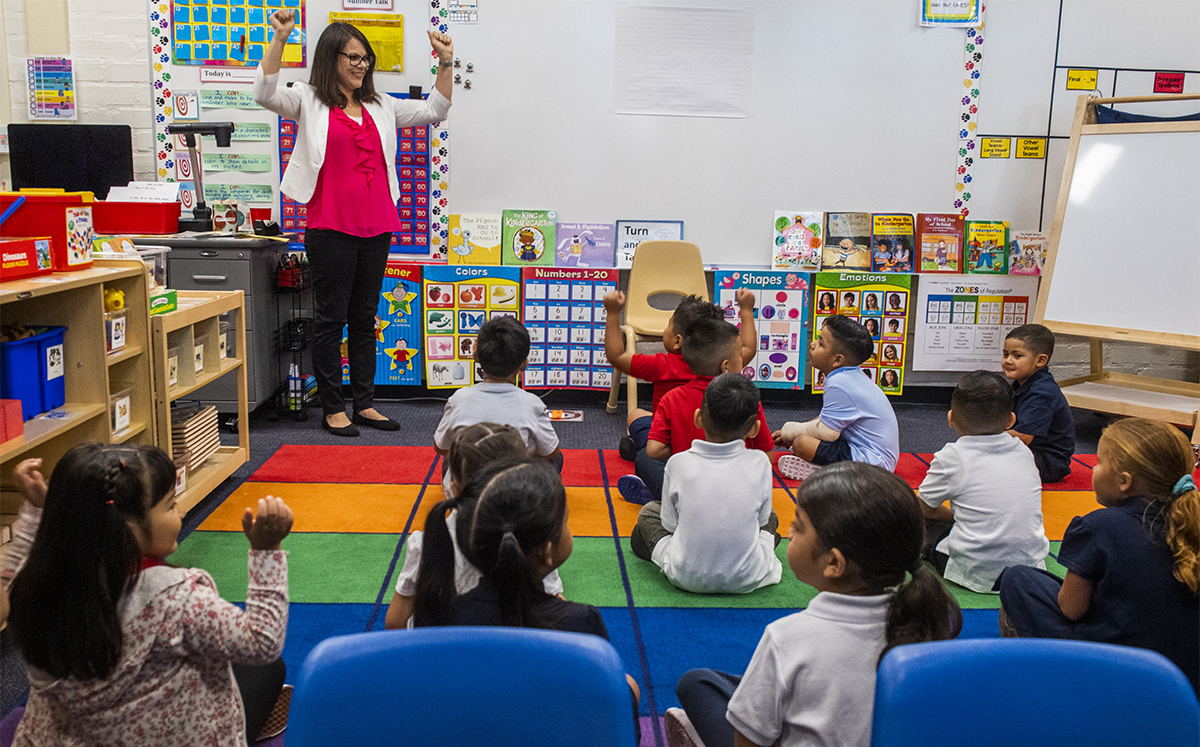The union that represents Long Beach Unified teachers recently picked a new contract bargaining team and is restarting negotiations with the district after its members took the unprecedented step of rejecting a tentative agreement.
“It’s thrown us into a bit of turmoil,” said Teachers Association of Long Beach President Gerry Morrison. The new bargaining team, chosen by Morrison and approved by TALB’s executive board, is “going to try to pick up the pieces and go back to the table with the district,” he said.
The old contract expired at the end of June but remains in effect until a new agreement is reached. TALB members rejected the tentative agreement the same month, with 61% voting no and 39% voting yes, a clear sign of dissatisfaction. Morrison speculated that the rejection was less about what the tentative agreement contains – modest bargaining wins – than what it lacks: a pay raise. Now, with the district operating at a significant deficit, the new bargaining team will attempt to reach a new agreement that TALB members can support.
Since the 2008 financial crisis and its fallout, TALB has consistently won pay raises, Morrison said. The last contract included a 4% salary hike retroactive to July 2023, increased future payments and a bonus.
District employees represented by TALB have come to expect these pay raises, said Morrison: “We’ve been a victim of our own success.”
Teachers who spoke with the Long Beach Post said they’re facing rising costs of living and large class sizes, so it was frustrating that the tentative agreement didn’t include a pay raise. Several, who spoke on the condition they not be named to avoid any blowback at their school sites, said they believe teachers are consistently undercompensated and undervalued.
But a pay increase may not be possible this year. At the most recent school board meeting, Yumi Takahashi, LBUSD’s chief business and financial officer, reported that the district had a deficit of $46.4 million at the end of the 2024-25 school year — the first deficit in a decade.
As enrollment continues to drop and projected costs rise, the district predicts a “steep acceleration of deficit spending,” Takahashi said. State funding has fluctuated in recent years, and the district has lost federal funding. This year, LBUSD’s deficit is projected to reach $100 million, Takahashi said in the board meeting.
One LBUSD high school teacher said she voted no on the agreement because of what was missing: pay raises and reductions in class size, adjunct hours and monthly meetings. “I hope the ‘no’ was a message to the district,” she said.
A high school teacher at Poly High School also voted to reject the agreement. She expressed concern that without a salary raise, “we’re not going to keep our young teachers.” Reading through the contract, “it felt like the bargaining team wasn’t truly bargaining,” she said.
Still, the tentative agreement included what Morrison called “little wins”: protections for payroll errors, exemptions for nurses and speech language pathologists, a clearer process for balancing classes, two added workdays and modest health insurance copay increases to keep premium costs low.
But since TALB membership rejected the agreement, those changes have not gone into effect. Without the premium cost-cutting measures in the agreement, “we’re heading for the situation where teachers are going to have to start paying for their health benefits,” Morrison said.
When Morrison asked members what they disliked about the tentative agreement, “a mixture of a ton of different things” bubbled up, he said. “In the last couple of years, we’ve been able to paper over a lot of that by getting pay raises,” he said. Without a pay raise, “people started to concentrate on their own personal gripes.”
Later this month, the TALB bargaining team will conduct a survey to better understand what those issues are – and how to address them.

